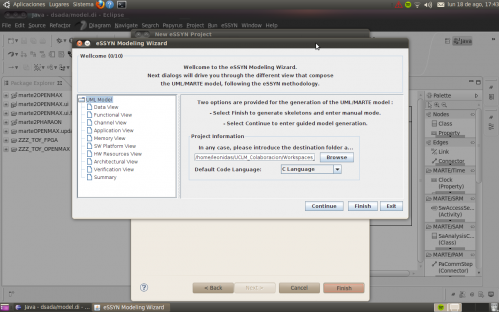
Introducing eSSYN
Embedded software synthesis
A revolutionary approach to fully automatic synthesis of embedded system software
A revolutionary approach to fully automatic synthesis of embedded system software
Allow multiple iterations, test different parallelizations schemes, map software components into different cores of your platform.
Save development time by leaving low value tasks like interface design and makefile generation to eSSYN.
A SW component based models allows you to focus on system design and decouple dependencies among team members or subcontractors.
Enables reuse, saves design time, increases reliability. eSSYN was included in the EU Innovation Radar
“Model Centric” means that a model of the whole system is used as the source and repository of all the information of the system, for all the processes involved in the development (optimization, verification, synthesis,…).
This approach brings numerous advantages to de design flow: Reusability, Productivity increase, Reliability, quality of results
Blocking/non-blocking, packet based, comunication among sw components can be tested and its effect on system performance checked.
You can migrate your application to other HW platforms and get your new binaries ina matter of minutes. No hassle with makefiles, compiler settings…
eSSYN is built on top of ECLIPSE with Papyrus.
eSSYN uses separate models for the HW Platform, the Application and the integrated embedded system, thus enabling reuse, reducing debug time and facilitating design exploration.
eSSYN offers a model creation wizard for guided creation of models, reducing adoption effort an avoiding the need of UML/MARTE training to start using the tool.
Behind eSSYN lies a standarized modelling methodology (UML/MARTE). Although by no means it is necessary to be an UML/MARTE expert to use the tool, it is good to know that any learning effort is invested on a standard and not on a vendor proprietary technology.




